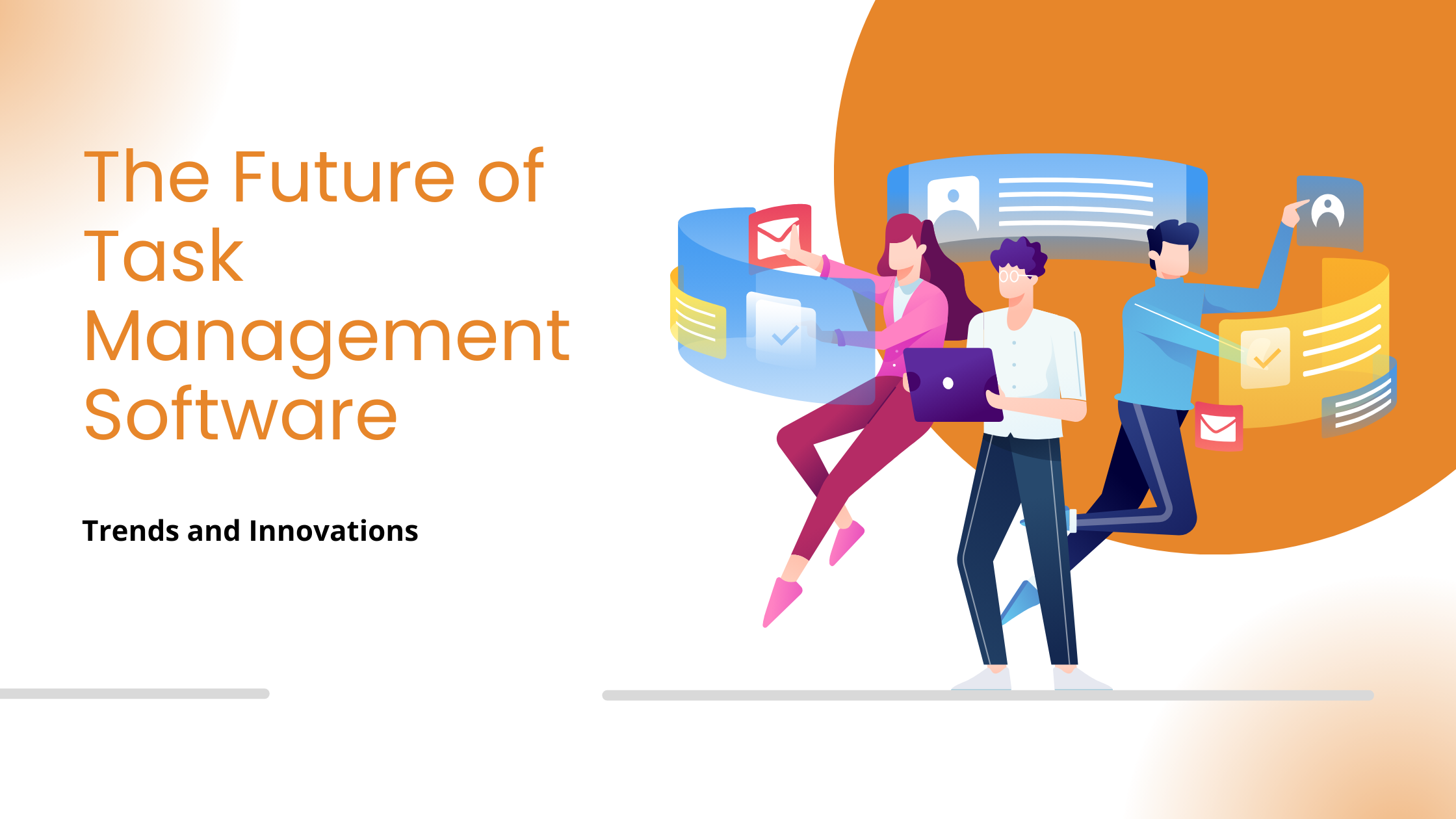In today’s fast-paced business environment, the demand for tools that streamline workflows and increase productivity has never been higher. One such tool is task management software, which has become an essential part of modern work culture. As businesses continue to evolve, so do the technologies they rely on, making it crucial to understand the future trends and innovations that will shape task management tools in the years to come.
In this blog, we will explore the future of task management software, including key trends and innovations, the role of automation, AI, and integration capabilities, and how businesses can leverage these advancements to stay ahead. We’ll also dive into Vryno’s own task management solution, Taskify, to showcase how it is at the forefront of these trends.
Why Task Management Software is Crucial for Business Success?
Before we delve into the future, it’s important to understand why task management software is vital for business success. These modern tools assist firms in scheduling, assigning priorities, and managing tasks, offering insights into productivity and ownership across teams. Task management software improves team collaboration, reduces errors, and enhances productivity. Whether you’re managing remote teams or complex projects, having the right task management solution can make or break your success.
Key Trends Shaping the Future of Task Management Software
With the continued growth in demand for project management and task tracking software, developers are constantly innovating to keep up with the needs of modern businesses. The forthcoming version of task management softwares is packed with intriguing possibilities to improve productivity and customer satisfaction. Below are some of the most significant trends to watch out for:
1. AI-Powered Task Management
Artificial Intelligence (AI) is already transforming industries across the globe, and task management is no exception. AI-powered tools can help streamline workflows by automating repetitive tasks, prioritizing activities based on deadlines or importance, and even predicting potential bottlenecks. In the future, AI-driven task management software will enable businesses to operate more efficiently by:
- Automatically scheduling tasks based on team availability and project deadlines.
- Offering intelligent suggestions to optimize task assignments.
- Providing real-time insights and data-driven decision-making.
This will reduce the need for manual intervention and allow teams to focus on high-value work.
2. The Rise of Automation
Automation is another trend that will play a critical role in the future of task management tools. Businesses are increasingly looking for ways to reduce manual processes and minimize human error. Automation in task management software will continue to evolve, allowing teams to set rules and triggers for certain tasks to be completed automatically. Some examples of automation in task management include:
- Automatically assigning tasks to team members based on predefined roles or workload.
- Sending reminders and notifications for approaching deadlines.
- Automating periodic tasks like daily meetings or quarterly reports..
The goal is to allow teams to focus on strategic initiatives rather than administrative duties.
3. Integration with Other Business Tools
The future of task management lies in its ability to integrate seamlessly with other business software. Most businesses use a variety of tools for project management, CRM, time tracking, and more. The ability to integrate task management tools with these other platforms will become a major selling point. For instance, tools like Taskify offer integrations with a range of applications such as Slack, Google Workspace, and Vryno’s own CRM.
In the future, we will likely see even more advanced integrations, where task management software can “talk” to all other systems used by a business, allowing for real-time data sharing and better visibility across the organization.
4. Mobile-First Approach
With the rise of online work and the sharing economy, more people tend to work on the move. Task management software will need to prioritize mobile accessibility to meet this growing demand. A mobile-first approach means that these tools will be designed with smartphone and tablet users in mind. In the future, mobile task management tools will offer the same level of functionality as their desktop counterparts, including:
- Task creation and assignment.
- Time tracking and project status updates.
- Collaboration with team members through mobile-friendly chat and file-sharing features.
The goal is to ensure that no matter where team members are, they can stay productive and keep tasks moving forward.
5. Collaborative Task Management
The foreseeable future of software for task management is expected to be largely focused on teamwork.. With teams becoming more dispersed due to remote work, businesses need tools that promote real-time collaboration and communication. Future innovations in task management tools will prioritize features that foster teamwork, including:
- Collaborative task boards and timelines.
- Instant messaging and integrated video conferencing.
- Shared documents and real-time editing capabilities.
These features will not only help teams work together more effectively but will also improve transparency and accountability within the organization.
6. Personalized User Experience
As technology continues to advance, so will the personalization of task management software. Future tools will offer tailored user experiences based on individual preferences, roles, and past behaviors. For instance, team leaders may receive customized dashboards that highlight high-priority tasks, while team members might get a simplified interface to focus on their specific tasks.
This will help users to:
- Prioritize tasks based on personal or team goals.
- Customize notifications and task views to match their working style.
- Access reports and analytics that are most relevant to their role.
Increased personalization will lead to higher user engagement and better task management outcomes.
Vryno Taskify: A Glimpse into the Future of Task Management Software
One tool that is already adopting many of these innovative features is Vryno’s Taskify. Built with the future of task management in mind, Taskify is designed to streamline workflows, enhance team collaboration, and provide the flexibility businesses need in today’s dynamic environment. Here’s how Taskify is leading the way:
1. AI and Automation Features
Taskify incorporates AI-powered features that help automate task scheduling, assignment, and prioritization. It can even predict potential bottlenecks and offer solutions before they become critical.
2. Seamless Integrations
With its ability to integrate with other business tools such as Slack, Google Drive, and Vryno CRM, Taskify allows for a seamless flow of information across all departments, improving overall business efficiency.
3. Mobile-First Design
Whether you’re working from a desktop or a smartphone, Taskify ensures you have access to all the features you need. Its intuitive mobile app allows for real-time updates, task creation, and collaboration on the go.
4. Collaboration at Its Core
Built for modern teams, Taskify offers robust collaboration features such as shared boards, real-time messaging, and the ability to comment directly on tasks.
For more information and to see how Taskify can revolutionize your team’s productivity, visit the Taskify product page here.
Future Innovations to Expect in Task Management Software
As task management tools continue to evolve, we can expect several future innovations that will further enhance their functionality:
- Voice-activated task management: The integration of voice assistants like Alexa and Siri into task management tools will allow users to create, update, and check tasks through voice commands.
- Predictive analytics: Future task management tools will use data from past projects to offer predictive analytics, helping teams to better estimate timeframes and resources for future tasks.
- Virtual and Augmented Reality (VR/AR): While this might seem far-fetched, the use of VR/AR for virtual task boards and immersive project planning could become a reality as these technologies advance.
Conclusion
The future of task management software is bright, with innovations like AI, automation, integration, and mobile accessibility taking center stage. These trends will transform how businesses manage their projects, collaborate with teams, and meet their goals. Tools like Taskify are already embracing these changes, making them invaluable for any organization looking to stay competitive.
By adopting the latest in task management tools, businesses can boost productivity, streamline processes, and ensure that their teams are always aligned. As environment evolves, staying afloat with these developments will be critical to longevity.
For more information about Taskify and how it can help your business, check out our product page.






